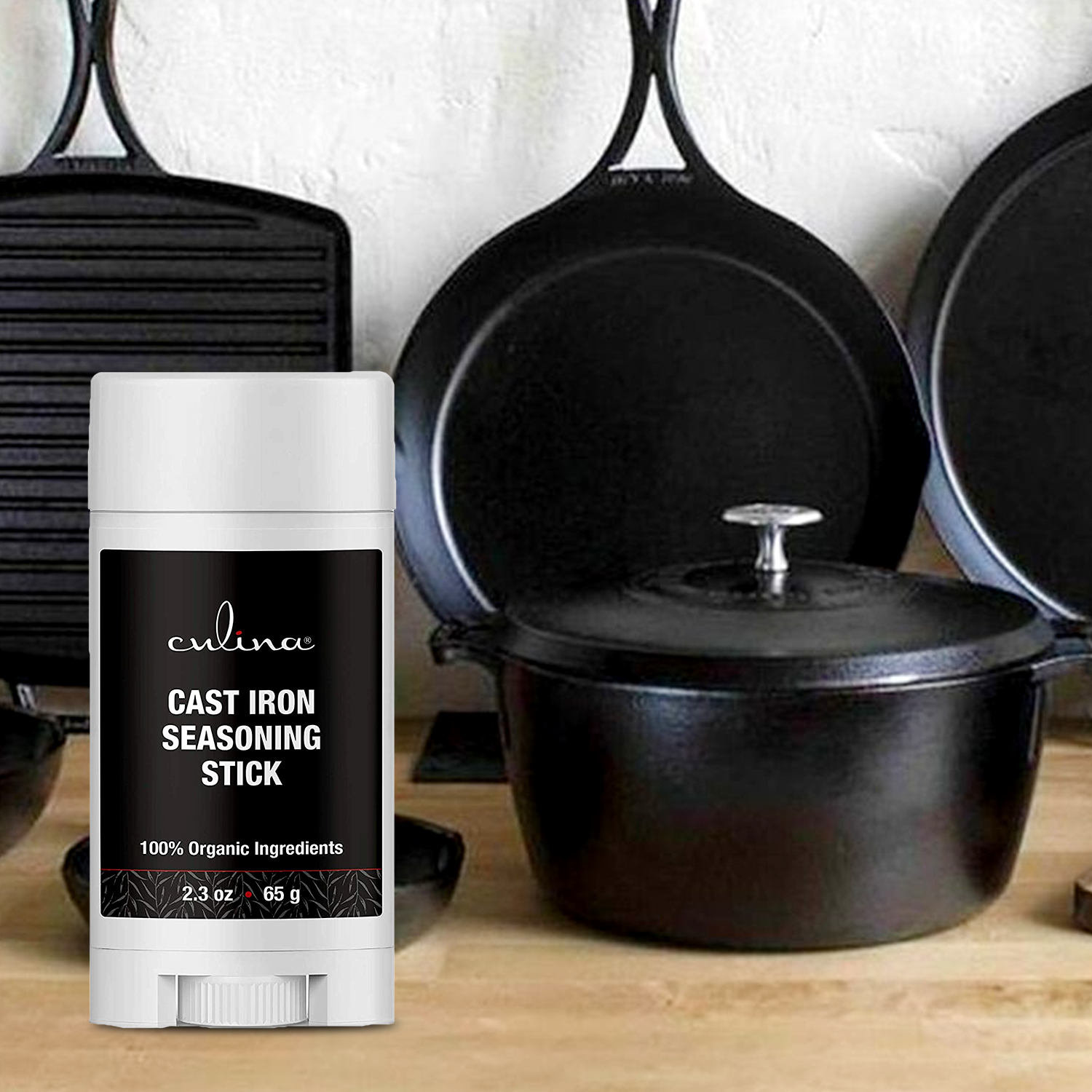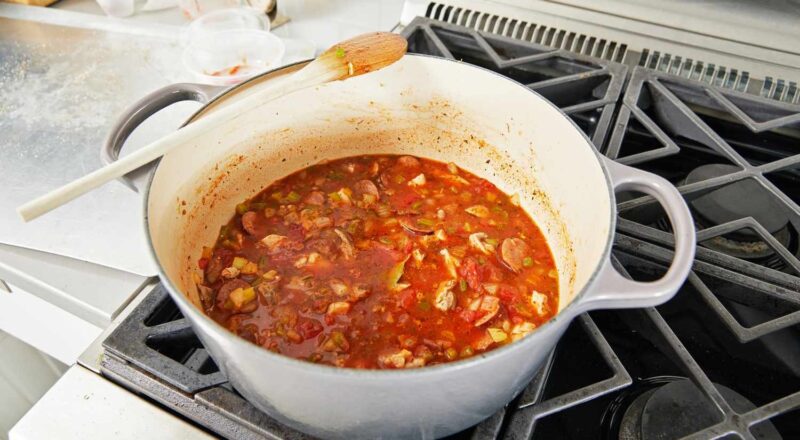A commonly asked question in the kitchenware community is, Which is better enamel or cast iron Dutch oven? Both kinds of Dutch ovens have their advantages and serve their own specific purposes in your culinary endeavors. Knowing which one suits you best requires an understanding of their differences, benefits, and limitations.

Understanding Dutch Ovens
What Are Dutch Ovens?
A Dutch oven is a versatile cooking pot with thick walls and a tight-fitting lid, traditionally made of cast iron. Its cherished for its ability to distribute heat evenly and retain it for long periods, making it ideal for braising, baking, and roasting. There are primarily two types: enamel-coated and traditional cast iron.
Importance in Modern Kitchens
From making fond memories with family meals to delivering professional-looking dishes, Dutch ovens have made a tremendous impact in modern kitchens. They are favored by chefs and home cooks alike for their durability and versatility. For those looking to bake bread, make soups, or prepare a roast, Dutch ovens can be indispensable.
:max_bytes(150000):strip_icc()/Which-Dutch-Oven-Size-Is-Right-for-You-FW-tout-72667962e9d849258bce69ba1e82a7b9.jpg)
Enamel Dutch Ovens
Composition
Enamel Dutch ovens are made of cast iron with a coating of porcelain enamel. This enamel layer prevents rusting and often comes in vibrant colors, adding not just utility but also aesthetic appeal to your kitchen.
Benefits
- No Seasoning Required: Unlike traditional cast iron, enamel-coated pots do not need to be seasoned before use.
- Easy Cleaning: The smooth enamel surface makes cleaning a breeze, often just requiring soap and water.
- Non-Reactive Surface: Offers a non-reactive cooking surface, which is ideal for acidic foods like tomato sauces.
You can check out more details on how to clean your Dutch oven on AllRecipes.

Cast Iron Dutch Ovens
Composition
Traditional cast iron Dutch ovens are made from pure cast iron. They require seasoning the process of maintaining a layer of cooked fat or oil on the surface to create a non-stick layer.
Benefits
- Superior Heat Retention: Cast iron retains and distributes heat more effectively, making it ideal for slow cooking and braising.
- Longevity: With proper care, a cast iron Dutch oven can last a lifetime, making it a sustainable choice.
- Cost-Effective: Generally, traditional cast iron Dutch ovens are less expensive than enamel-coated ones.
Which Is Better Suited for Cooking?
Baking
Enamel Dutch ovens are often preferred for baking bread due to their non-stick surface. However, traditional cast iron can also deliver terrific results if properly seasoned. If youre baking frequently and wish to avoid frequent re-seasoning, enamel might be your better option.
Searing
For searing meats, nothing beats the raw power of a traditional cast iron Dutch oven. It can achieve higher temperatures and maintains them better, giving you a perfect crust.
Cleaning and Maintenance
Ease of Cleaning
Cleaning enamel Dutch ovens is easier since they are often dishwasher-safe. In contrast, traditional cast iron requires more effort to clean and must be dried immediately to avoid rusting. Here is a helpful guide to clean Dutch ovens effectively.
Maintenance
Enamel Dutch ovens dont need seasoning, while cast iron must be regularly seasoned to keep it in top condition. This factor might make enamel a more attractive option for those who prefer low-maintenance cookware.
Price Considerations
Initial Cost
Enamel Dutch ovens are usually more expensive than traditional cast iron. However, the additional cost might be justified by the ease of cleaning and the aesthetic appeal.
Long-Term Value
Both types offer tremendous long-term value, but traditional cast iron might edge out enamel in terms of longevity and durability.
Versatility in Cooking
Range of Recipes
Both enamel and cast iron Dutch ovens can handle a wide range of recipes, from roasts to baking bread. You can follow a great recipe to cook pot roast optimally using a Dutch oven.
Cooking Techniques
Traditional cast iron is more versatile if youre interested in techniques like open-flame cooking or using it in the oven. On the other hand, enamel is better for stovetop cooking due to its non-stick properties.
Impact on Flavor
While traditional cast iron can impart a subtle flavor to food from its seasoned surface, this can be both a benefit and a drawback. Some people prefer the neutral taste that enamel provides.
Handling and Usability
Weight
Both types are heavy, but traditional cast iron tends to be slightly heavier than enamel. If weight is a concern, this is something to keep in mind while making your choice.
Ease of Use
Enamel Dutch ovens often offer a more user-friendly experience due to their non-stick properties and easier cleaning.
Stovetop Compatibility
Both enamel and traditional cast iron Dutch ovens are compatible with most stovetops, including induction.
Induction and Oven-Safe Capabilities
Both types perform well on induction stoves and are oven-safe. However, enamel-coated Dutch ovens come with temperature limitations due to the properties of the enamel coating.
Design and Aesthetics
Appearance
Enamel Dutch ovens come in various vibrant colors, making them a delightful addition to your kitchens decor. Traditional cast iron, while more utilitarian in appearance, offers a rustic charm.
Longevity and Durability
Both types of Dutch ovens offer incredible durability. Traditional cast iron, with proper care, can last generations, while enamel might show signs of wear or chipping over time.
Sustainability and Environmental Impact
Traditional cast iron is often viewed as a more sustainable choice due to its longer lifespan and fewer manufacturing processes involving chemicals.
Conclusion
The decision between an enamel and traditional cast iron Dutch oven boils down to your specific needs and cooking style. Enamel offers ease of use and maintenance, while traditional cast iron provides superior heat retention and versatility. Knowing which is better enamel or cast iron Dutch oven for you will ultimately depend on your kitchen priorities.
FAQs
Can You Use Metal Utensils on Enamel Dutch Ovens?
Using metal utensils can scrape the enamel coating, so its recommended to use wooden or silicone utensils.
How Do You Season Cast Iron Dutch Ovens?
Seasoning involves coating the surface with oil and heating it to create a non-stick layer. Heres a detailed guide on how to properly use cast iron.
Can You Cook Acidic Foods in Cast Iron Dutch Ovens?
Casting iron can react with acidic foods unless well-seasoned. Enamel Dutch ovens are better suited for such dishes.
As an Amazon Associate, I earn from qualifying purchases.

